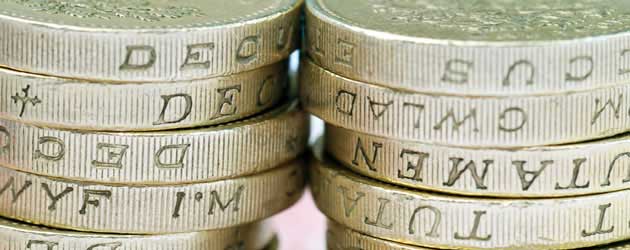
The Pound to New Zealand Dollar exchange rate declined by around -1.1 cents to 1.8115 last night as a tripartite of economic developments led to a significant shift in sentiment towards riskier assets.
Investors celebrated the fact that Italy has agreed upon a new government, headed by new Democratic Party leader Enrico Letta, by bringing down the yield on Italian 10-year debt to a 2.5-year low of 3.94%. The Euro also benefitted, growing by around 0.4 cents to 1.1830 (GBP/EUR) against the Pound, as the political impasse in Italy began to clear up. Luca Cazzulani of Unicredit said:
“The positive outcome of the auction reflects an improved situation compared with the previous auctions, helped by the announcement of a new government”.
Enrico Letta’s government easily passed a vote of confidence 453-153 in the Italian Lower House of Parliament last night, thanks to a concession from the new PM to axe an unpopular tax on property. Silvio Berlusconi and his People of Freedom Party had campaigned heavily for this law to be revoked and it was seen as a vital stepping-stone towards bringing together the politically polarised centre-left Democratic Party and Berlusconi’s right-wing coalition.
However, the divergent nature of the grand coalition is likely to lead to tensions later down the line and some analysts believe that the current period of stability could prove fleeting due to the inevitable flare-ups in the future. Nicholas Spiro of Spiro Sovereign Strategy said:
“The disconnect between Italy’s bond market and the real economy is likely to increase further in the coming days. This will throw the mispricing of Italian sovereign debt into sharper relief, particularly given concerns about the durability of Mr Letta’s government”.
The New Zealand Dollar was also boosted by a softer-than-expected German CPI print. The headline German inflation Consumer Price Index figure sunk to a 2.5-year low of 1.2% during April, which was seen to improve the probability of an interest rate reduction from the European Central Bank later this week. Although the downbeat report reflected a growing sense of weakness in the Eurozone’s flagship economy, its monetary easing implications were interpreted positively for global risk sentiment.
On Thursday the ECB will decide whether to cut the benchmark interest rate by -25 basis points to a new record low of 0.50%. The market consensus suggests a rate cut is on the cards, but recent comments from ECB policy-makers have suggested otherwise, due to fears that the benefits of lower rates may not reach the wider economy.
Investors’ appetite for risk garnered further support as the US Core Personal Consumption Expenditure inflation index sunk to a 3-year low of 1.3% – far lower than the Federal Reserve’s target of 2.0%. The cooling inflationary pressure affords the Fed plenty of room to continue with its substantial monetary easing scheme, and could lead to prolonged life-support from the US Central Bank.
With risk sentiment rising, Sterling also lost ground to the Canadian Dollar and the Australian Dollar. GBP/CAD shrunk around -0.65 cents to 1.5665 and GBP/AUD declined by around -0.9 cents to 1.4960.

Comments are closed.